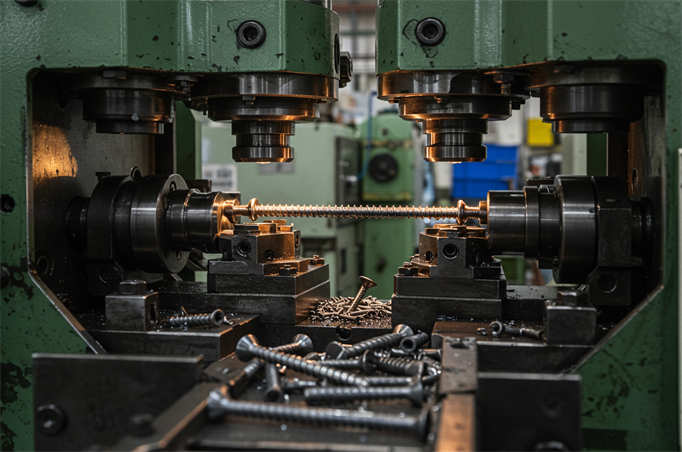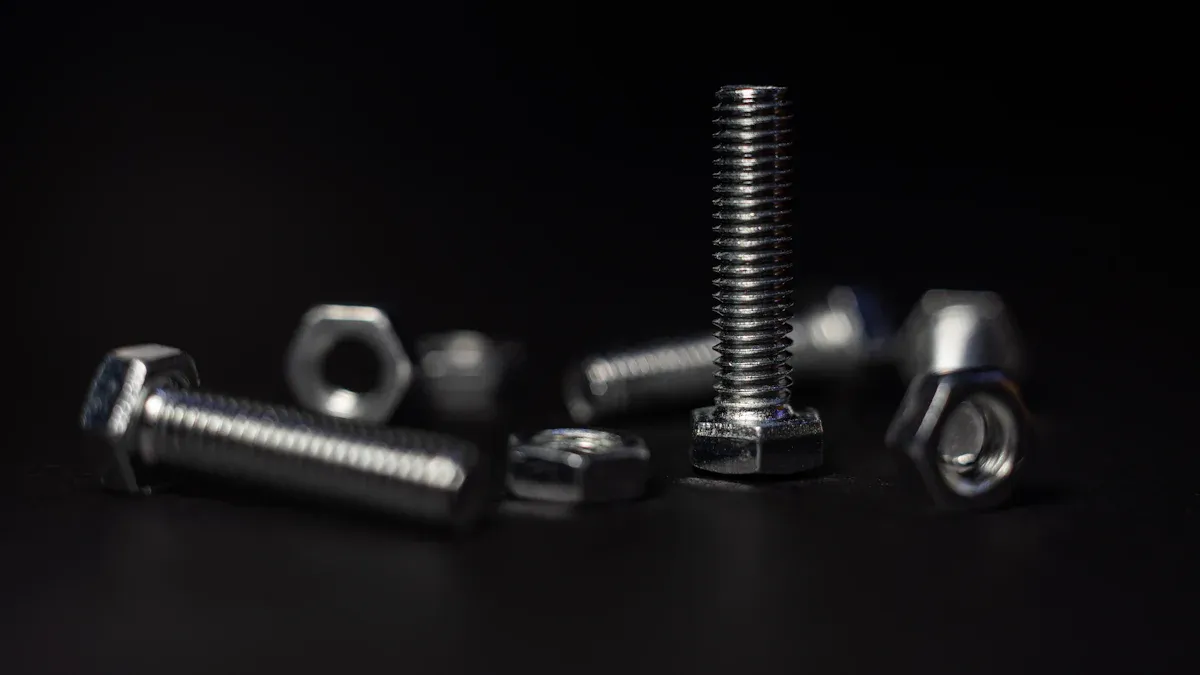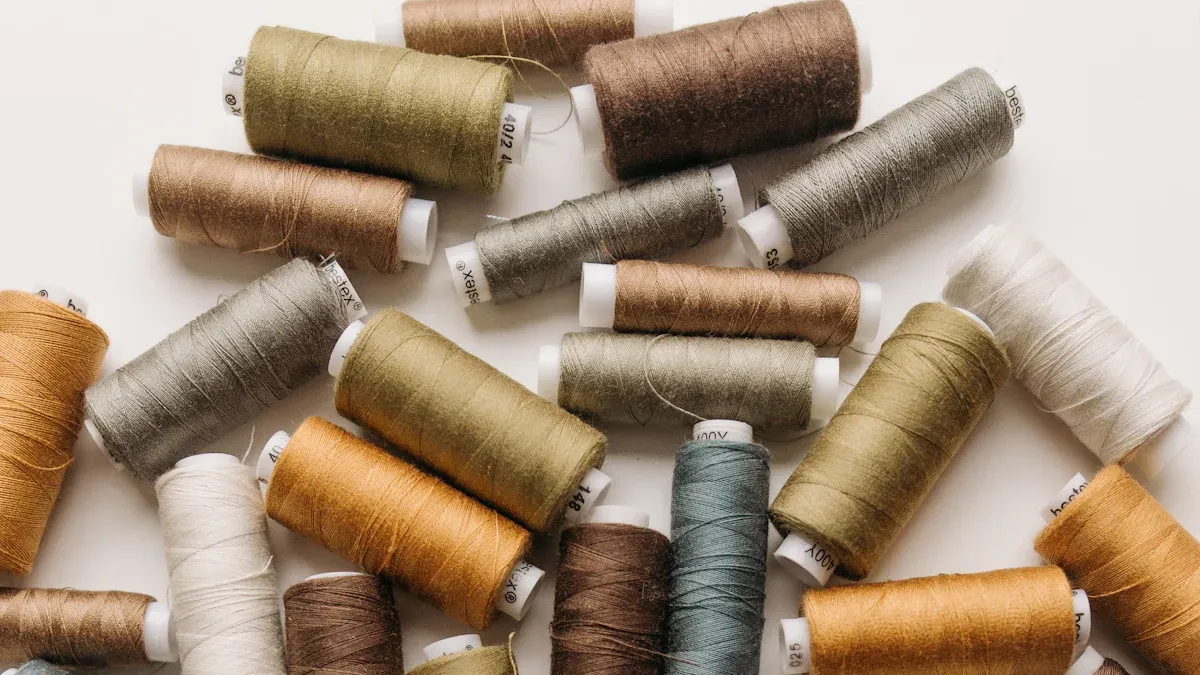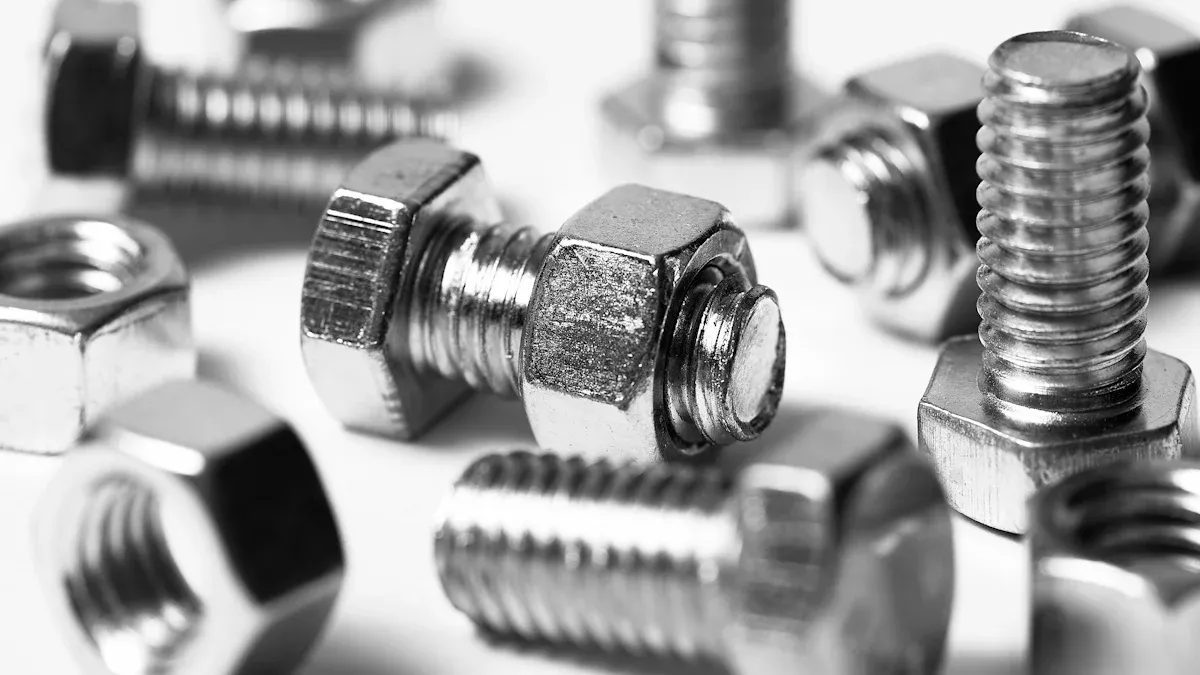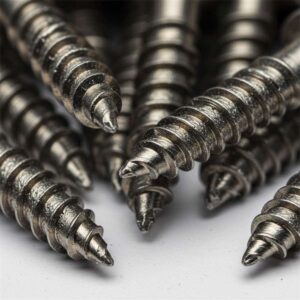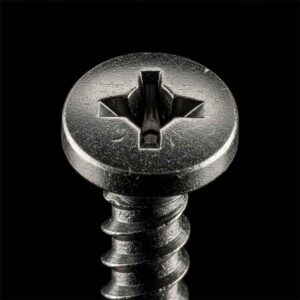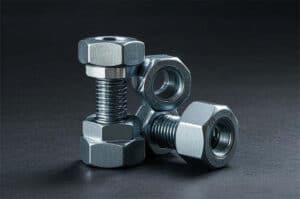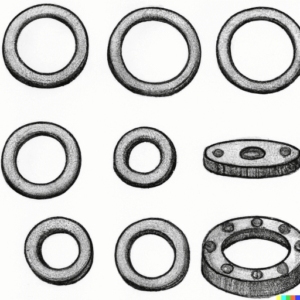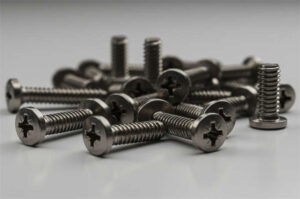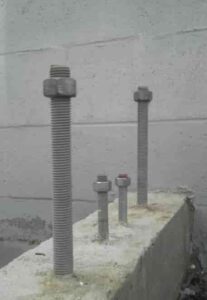You need to pick the right bolt fastener material for your project. The strength, brittleness, and corrosion resistance of materials are important. Galvanic properties also matter. Metal fasteners like bolts and nuts are used the most. They work well in many situations. Look at this table to see the most common fastener materials:
| Tipo de material | Market Share (%) | Notas |
|---|---|---|
| Metal | 91.1 | Had the biggest market share in 2024 |
| Plástico | N/A | Becoming popular for corrosion resistance |
You should always think about what your project needs. The right choice helps your fasteners stay strong and last longer.
Principais conclusões
- Pick the right bolt material for strength and safety. Think about corrosion resistance and what your project needs. This helps your project last longer and stay safe.
- Look at things like humidity and temperature when you pick fasteners. This stops rust and keeps the material from breaking.
- Learn the good and bad things about each material. Stainless steel works well outside. Aluminum is lighter but not as strong.
- Do not mix different metals to stop galvanic corrosion. Try to use the same metal for bolts and nuts.
- Check and take care of your fasteners often. This lets you find problems early and helps your project last longer.
Bolt fastener material overview
Key properties
Quando você escolhe um bolt fastener material, you should think about some important things. These things change how well fasteners work in different places. Here are some main things to look at:
- Força: This shows how much force a fastener can take before it breaks.
- Resistência à corrosão: This tells you how well a material can stop rust or chemical harm.
- Ductility: This means the material can bend or stretch without snapping.
- Hardness: This tells you how well a fastener can avoid scratches or dents.
- Fatigue strength: This is how well it can handle being used over and over.
- Elastic limit: This is the most stress a material can take before it stays bent.
- Density: This tells you if a material is heavy or light.
Picking the right fastener material helps you build things that are safe and last a long time. If you choose the wrong one, you could get rust, broken parts, or even safety problems.
Pros and cons summary
Every material has good and bad sides. Some are better for certain jobs than others. Here is a quick look at the most common materials:
| Material | Vantagens | Desvantagens |
|---|---|---|
| Aço | Strong, lasts long, not expensive, easy to find | Can rust, needs care, heavy |
| Aço inoxidável | Stops rust, strong, works in high heat | Costs more, can hurt threads in soft materials |
| Titânio | Light, strong, stops rust, very tough | Expensive, hard to use, not good for high heat |
| Alumínio | Light, stops rust, easy to use, strong for its weight | Not as strong, can rust, costs more than steel |
| Latão | Stops rust, easy to shape, looks nice | Soft, melts at lower heat, can tarnish, costs more |
| Bronze Silício | Good in saltwater, stops rust, great for boats | Costs more, not as strong as steel |
You should always think about the good and bad sides of each choice. The best one depends on what you need, where you use it, and how strong your fasteners must be.
Different materials for fasteners
Aço
Steel is one of the most common materials for bolts and other fasteners. You will find it in many types of nuts and bolts because it offers high strength and is easy to find. Steel bolts can handle heavy loads and work well in most building projects.
| Benefit/Drawback | Descrição |
|---|---|
| Força | Steel bolts have high mechanical strength, with some reaching up to 300ksi. |
| Resistência à corrosão | Steel resists corrosion but may need extra coatings in wet or salty places. |
Steel bolts can rust if you use them in moist or salty environments. To protect them, you can choose coatings like zinc, cadmium, or PTFE. Zinc is cheap and helps stop rust in humid air, but it does not work well in saltwater. Cadmium gives strong protection but is toxic and banned in many places. PTFE makes the surface slippery but can scratch off during use.
Tip: Use galvanized steel in dry areas. For wet or salty places, stainless steel works better.
Aço inoxidável
Stainless steel bolts are popular because they stop rust and last a long time. You can use them in places where water or chemicals might cause problems. Stainless steel keeps its corrosion resistance even if you scratch it.
- Stainless steel bolts resist rust and work well in marine, chemical, and outdoor settings.
- These bolts can suffer from galling, which means the threads can stick or seize during tightening. This can make removal hard and may cause breakage.
- Stainless steel bolts cost more than regular steel bolts.
- You will find stainless steel fasteners in construction, cars, airplanes, boats, medical tools, food processing, and electronics.
Note: When you use stainless steel bolts with softer materials, be careful. The threads can damage the softer parts.
Titânio
Titanium bolts are strong and very light. You will see them in airplanes, race cars, and boats where weight matters. Titanium has a great strength-to-weight ratio, so you get strong bolts without adding much weight.
- Titanium bolts weigh about 42% less than steel bolts of the same size.
- These bolts resist rust and chemicals, making them good for harsh environments.
- Titanium bolts cost much more than steel or aluminum bolts. The price is high because making titanium is hard and takes special tools.
- Using titanium bolts can save fuel in cars and planes because they make the whole structure lighter.
Tip: Titanium bolts are tough but not the best for high-heat spots. They are hard to work with and cost a lot up front, but they can save money over time in the right job.
Alumínio
Aluminum bolts are light and easy to use. You can pick from different alloys, each with its own mix of strength and corrosion resistance.
| Alloy Type | Resistência à corrosão | Capacidade de carga | Notas |
|---|---|---|---|
| 2024-T4 | Bom | Alta | Good balance of strength and cost. |
| 7075-T73 | Improved | Muito alto | Special heat treatment for extra strength. |
| 6061-T6 | Alta | Moderado a alto | Works for many thread types. |
| 6062-T9 | Bom | Higher than 6061-T6 | Used for special jobs needing more strength. |
Aluminum bolts resist rust but can fail if you use them with other metals in wet places. They can suffer from corrosion fatigue, stress cracking, and hydrogen embrittlement. Aluminum bolts are not as strong as steel bolts, so you should use them where loads are lighter.
Note: Watch out for galvanic corrosion if you use aluminum bolts with other metals in salty or wet places.
Latão
Brass bolts work well in places with water, chemicals, or where you need good electrical contact. Brass forms a protective layer that keeps it from rusting.
- Brass bolts resist corrosion in marine and outdoor jobs.
- These bolts conduct electricity well, so you see them in electrical switches and connectors.
- Brass bolts do not spark or cause magnetic problems, making them safe in explosive areas.
- They cost less than stainless steel bolts but more than carbon steel bolts.
- Brass bolts are softer and can bend or break if you use them for heavy loads.
Tip: Use brass bolts for boat fittings, outdoor lights, and electrical work. They last long in salty air.
Liga de aço
Alloy steel bolts are stronger and harder than regular carbon steel bolts. You will find them in mining machines, oil rigs, military vehicles, and power plants.
| Property | Aço carbono | Liga de aço |
|---|---|---|
| Resistência à tracção | Inferior | Mais alto |
| Ductility | Moderado | Improved |
| Hardness | Inferior | Mais alto |
| Resistência à fadiga | Moderado | Enhanced |
Alloy steel bolts can handle high stress, heat, and impact. They cost more than regular steel bolts but give better performance in tough jobs. You should use them when you need extra strength and durability.
Note: Alloy steel bolts may need coatings to stop rust, especially in wet or salty places.
Silicon bronze
Silicon bronze bolts are a top choice for marine and coastal jobs. They resist rust better than other copper-based fasteners and are stronger than brass.
- Silicon bronze bolts do not suffer from dezincification, a problem that can weaken some brass bolts.
- These bolts work well in saltwater and last a long time on boats and docks.
- You will see them in propeller shafts and underwater parts because they do not attract barnacles or algae.
Tip: Use silicon bronze bolts for any job near the ocean or in wet, salty air.
cromada
Chrome-plated bolts look shiny and resist wear. The chrome layer makes the surface hard and helps stop rust in normal conditions.
- Chrome plating gives bolts a tough, protective shell.
- These bolts resist scratches and last longer if you keep them clean.
- You need to check chrome bolts often. Clean them with soft cleaners and do not over-tighten them.
- In harsh places, chrome can wear off, so you must keep up with maintenance.
| Maintenance Practice | Descrição |
|---|---|
| Regular Maintenance | Clean with gentle products and check for damage often. |
| Preventive Care | Fix any coating problems quickly and keep up with protective treatments. |
Note: Chrome bolts are common in cars and bikes for their looks and toughness, but you must care for them to keep their advantages.
By learning about the different materials for fasteners, you can choose the right bolts for your project. Each material has its own advantages and disadvantages. Think about strength, corrosion resistance, and where you will use the bolts. This will help you get the best durability and performance from your bolt fastener.
Comparing different materials
Força e durabilidade
Bolts need to stay strong when pushed or pulled. Steel bolts are the strongest for most jobs. Stainless steel is also strong, but some types are not as tough. Titanium bolts are just a little stronger than aluminum bolts if they are pure. Aluminum bolts are the weakest in this group. If you want bolts that last a long time, use steel or stainless steel.
- Steel: Best strength for most jobs
- Stainless steel: Strong, but some types are weaker
- Titanium: A bit stronger than aluminum
- Aluminum: Weakest, good for light jobs
Resistência à corrosão
Bolts last longer if they do not rust. This is important in wet or salty places. Grade 316 stainless steel, aluminum, silicon bronze, and hot dip galvanized bolts all fight rust in saltwater. If you work near the sea or in damp spots, these bolts protect your nuts and bolts from harm.
- Grade 316 stainless steel: Great for the ocean
- Aluminum: Good for wet places
- Silicon bronze: Best for boats and docks
- Hot dip galvanized: Works well outside
Galvanic properties
Mixing metals can cause galvanic corrosion. This can damage your bolts and nuts. To stop this, use fasteners with metals that are close in the galvanic series. Do not mix high-risk pairs like aluminum with steel or galvanized steel with copper. Use washers that insulate if you must mix metals. Coated bolts help, but you should check them for damage.
Tip: Check your bolts often and fix problems fast to stop rust.
Cost and application
Titanium bolts cost the most because they are hard to make. Stainless steel bolts cost less and are good for saving money. Over time, titanium bolts can save money in tough places because they last longer. Stainless steel, copper alloys, and aluminum are good for many jobs.
| Material | Características | Formulários |
|---|---|---|
| Aço inoxidável | Stops rust, strong | Building, Boats, Medical tools |
| Copper Alloys | Good for electricity, fights rust | Electrical parts, Boat hardware |
| Alumínio | Light, stops rust, conducts electricity | Planes, Electrical, Cars |
Pick the right bolt by thinking about strength, rust resistance, and price. For cars, use aluminum or stainless steel bolts. For boats, use silicon bronze or stainless steel. For electrical jobs, copper alloys or aluminum bolts are best.
Choosing the right bolt fastener
Application needs
Você precisa pick bolt fastener materials that fit your project. First, think about what kind of bolts you need. Some projects need strong bolts. Other jobs need bolts that are light. Check how much weight the bolts must hold. Make sure the bolts can handle the force in your project. Look at each material’s strength and how well it fights rust. If you use bolts outside or near water, stainless steel is a good choice. It does not rust and is very strong. Carbon steel works well inside. It costs less and comes in many types for different strengths. Specialty alloys are best when you need bolts for high heat or chemicals.
Tip: Always pick fasteners that match the load and stress in your project. This helps bolts last longer and keeps things safe.
Here are some things to think about:
- Temperature range for your project
- Risk of corrosion in the environment
- Impact of vibration and fatigue
- Type of fastener needed
- Load capacity required
Environmental factors
The place where you use bolts changes how they work. High heat can make bolts get bigger or smaller. This can make bolts loose and weaken them. Humidity brings water, which causes rust and makes bolts weak. Chemicals can hurt some materials, so you need bolts that can resist them.
| Environmental Factor | Impact on Bolts | Best Material Choice |
|---|---|---|
| High Temperature | Expansion, loss of tightness | Specialty alloys, stainless steel |
| High Humidity | Corrosion, rust | Stainless steel, silicon bronze |
| Chemical Exposure | Material breakdown | Titanium, specialty alloys |
You should always think about the environment before you pick bolts. This helps you stop problems like rust, breaking, or losing strength. Pick materials that fit your project and the place where you will use them.
When you choose a bolt fastener, you should look at strength, corrosion resistance, and where you will use it. No single material works best for every job. Use the tables and tips in this blog to help you decide. If you have a special project, talk to an expert.
Remember, picking the right bolts helps your project last longer and stay safe.
Perguntas frequentes
What is the best bolt material for outdoor use?
You should pick aço inoxidável or silicon bronze for outdoor projects. These materials resist rust and last longer in wet or salty air. Stainless steel works well for most jobs. Silicon bronze is best for marine or coastal areas.
Can I mix different metals for bolts and nuts?
Mixing metals can cause galvanic corrosion. This weakens your fasteners. You should use the same metal for bolts and nuts when possible. If you must mix, use insulating washers to help prevent corrosion.
Why do some bolts need coatings?
Coatings protect bolts from rust and wear. Steel bolts often need coatings like zinc or PTFE. These coatings help your bolts last longer, especially in damp or harsh environments.
Are aluminum bolts strong enough for heavy loads?
Aluminum bolts are light and resist rust. They do not hold heavy loads as well as steel or alloy steel bolts. You should use aluminum bolts for light-duty jobs where weight matters more than strength.
How do I choose the right bolt for electrical work?
For electrical work, you should use brass or copper alloy bolts. These materials conduct electricity well and resist corrosion. They work best in switches, connectors, and other electrical parts.
